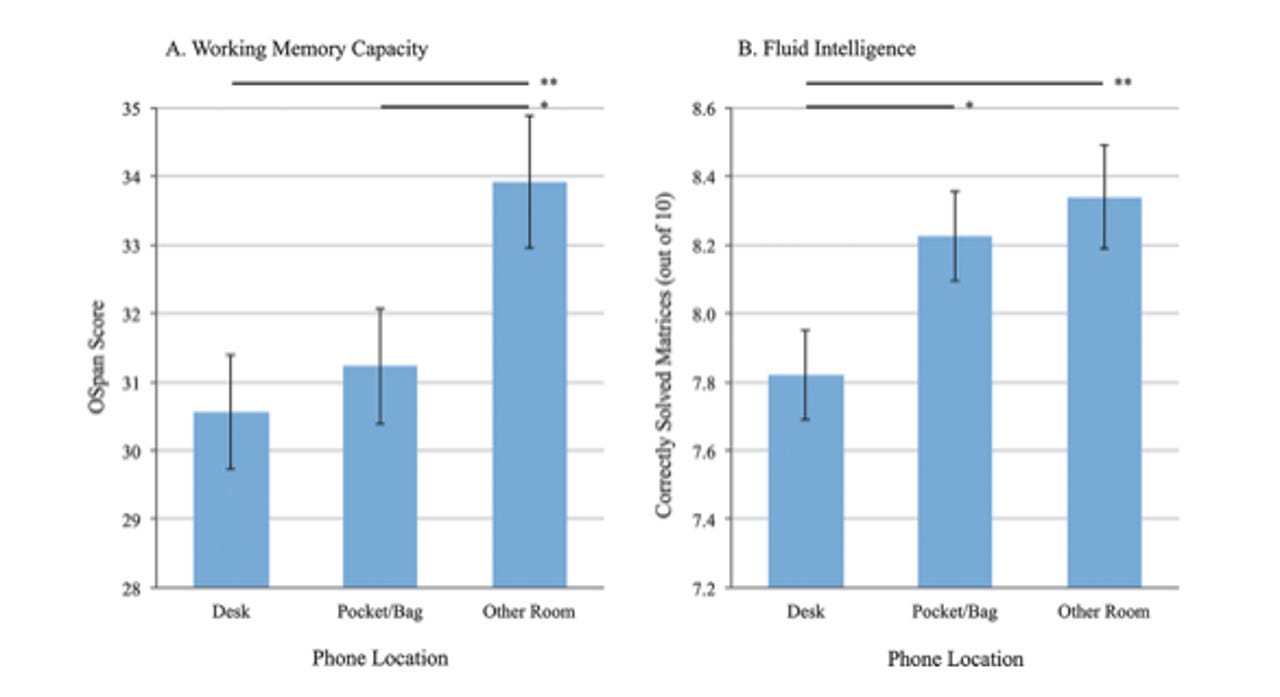Science fact: Your smartphone really is making you dumber


Participants with a phone in another room perform significantly better in cognitive tests than those with a phone on the desk.
The "mere presence" of a smartphone can impair your brain's cognitive performance, according to a study of 800 smartphone users carried out by the University of Texas at Austin.
Researchers from the university's McCombs School of Business have found that even having a phone nearby and face down can reduce cognitive capacity when completing tasks that require full concentration.
As the researchers explain in a new paper, our cognitive capabilities are largely determined by the brain's "working memory capacity" and "fluid intelligence", or ability to reason and solve problems. They argue that the visible presence of a smartphone consumes limited cognitive capacity because resisting the distraction takes mental effort.
The tests were designed to measure available cognitive capacity, or the brain's ability to hold and process data at a given time.
In one test, over 500 undergraduates were told to put their phone on the desk face down, in their pocket or bag, or in another room. All participants were told to switch their phones to silent before completing the computer-based tests.
The researchers found that students with phones in another room significantly outperformed those with a phone on the desk, and slightly outperformed those with the phone in their bag or pocket.
"We see a linear trend that suggests that as the smartphone becomes more noticeable, participants' available cognitive capacity decreases," said the study's lead author, McCombs assistant professor Adrian Ward.
"Your conscious mind isn't thinking about your smartphone, but that process -- the process of requiring yourself to not think about something -- uses up some of your limited cognitive resources. It's a brain drain."
A second experiment with over 200 undergraduates looked at how cognitive capacity was affected by how much a person believed they needed their smartphone.
It found that students who reported a high dependence on their phones performed worse than less-dependent students if the smartphone was on the desk or in their pocket or bag.
More on smartphones
- Huawei announces global launch details of the Honor 9 and Honor Band 3
- Nokia 6: Android-powered flagship hits US from July for $229
- Apple's iPhone turns 10: Here's how the device impacted business, work
- Six features the iPhone 8 needs to stay ahead of Android
- Google: Expect faster page loads, better battery life from our Brotli ad squasher
- iPhone challenger OnePlus 5 arrives. But will it trouble Apple's flagship?